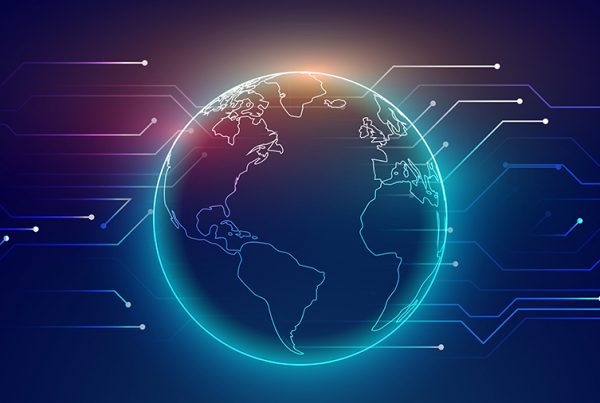
Whether you’re a big corporation or a small business, today’s competition demands you stay on top of innovations. In the wake of several bankruptcies the past year, new pressure is being placed on adapting business models. The next big tech development would determine your market’s major players and your company’s bottom line.
Before you hurry to your Chief Technology Officer (CTO), our list walks you through on the major technology trends and changes we’re expecting to make news in the year 2020. One of these might be your next competitive edge. Best to start preparing to make the changes. Which of these technology trends will yours be adopting in the coming year?
1. Artificial Intelligence (AI)
AI has proven to be an efficient tool in helping businesses in automating processes and reducing costs, a boost for companies of all sizes making it number 1 in our list of top technology trends 2020. It also comes in more forms than most people anticipate. The use of AI has already started being integrated into business in small forms, such as the use of chatbots for websites or social media. Alexa by Amazon is one popular and well-received example of AI.
Other more advanced kinds of AI are where robots process information. In some cases, it translates to more sophisticated interaction with people. The citizen robot of Saudi Arabia, Sophia, caused waves in news and garnering mixed reactions, ranging from the excitement of the future to worry about its direction.
2. 5g Data
If we’re looking for anything that would compete with oil in value, 5g data connection is leading the race as countries make their bid to be the first to establish it, as well as companies. Speed is predicted to be exponentially greater than what we have at the present, spelling a lot of benefits innovation-wise for businesses and consumers.
Bringing it to the market and adoption is proving to take longer than initially expected as current mobile carriers need major adjustments in infrastructure to make a 5G world a reality. Costs for the individual would also need to be pushed down, another puzzle companies are still trying to solve. (Read more about 5g Network Countries)
3. Hyper Automation
More like a result of a host of other technology trends coming together, faster speeds, internet capabilities, software and artificial intelligence have created the first wave of this trend. Simple cases are the automation of email and SMS sending.
There are several apps on the digital market for automating other tasks, such as daily reports, or simple everyday to-dos, like room temperature control in homes. Internet of Things or IoT, which is the installation of WiFi features in appliances and other parts of a house, is a good indication of how big a part of our lives automation would play a role in.
4. Autonomous Driving
It’s provided the most excitement for people among all tech trends but has been more elusive. Another instance of automation from artificial intelligence and IoT, supporter claim it’d bring about safer road conditions with the reduction in human errors. The change will begin with taxis or private-cab hailing apps similar to Uber and Lyft.
However, the technology is proving more complicated with the wake of fatalities and mishaps in its development. Launches have also been a problem with cars failing to start. Laws and restrictions are a needed discussion but remain a growing white elephant yet to be tackled.
5. Multi-Experience or Extended Reality
Also called mixed reality, multi-experience is the combination of virtual reality and augmented reality, both still largely contained in the entertainment industry. Virtual reality (VR) creates a whole new world, almost erasing actual reality and replacing it with a created one. Senses aren’t limited to sights and sounds but also include touch, tastes and smells.
Augmented reality aims to experience the world with virtual or digitally created objects in it, like in the case of holographic items people can interact with. Google glasses and similar products were the first attempts at implementing AR for daily use. They’re also responsible for bringing it to mainstream media and global awareness.
6. Democratization of Tech
It’s providing individuals from different classes and backgrounds with equal access to technology. If you look online, you can find several free coding programs designed to be more enjoyable while educational.
More often, they’re for people who can’t afford to pay to learn these lessons. Others offer schooling that you pay for once you hired. Still, other curriculums are aimed at segments, such as young girls, who normally aren’t encouraged or enticed to join the male-dominated industry.
However, it’s not limited to teaching coding online. Google demonstrated this by creating a voice-prompted Google search made available to regions where there was no internet access and much less, smartphones.
7. Digital Currency
For a long time, credit cards were viewed as the way of the future, but this is quickly becoming obsolete. Cryptocurrency had a rough start, with much backlash and apprehension from the public, governments and financial institution. Yet more conservative names are now exploring the idea.
JP Morgan released its first cryptocurrency, named JPM coin while the Bank of America won the storage patent for cryptocurrencies. Both brands swing back and forth in their opinions on the tech, even with the Bank of America banning Bitcoin from its transactions months before gaining the crypto wallet patent. Ultimately, they seem to be moving forward, dipping in one virtual monetary toe at a time.
Meanwhile, China has moved forward with tech democratization spilled to alternative banking in the country. Using WhatsApp is the most common form of payment, overtaking cash as the most liquid asset in the nation.
The world is changing faster than in past decades. Businesses are offered more ways of leveraging their brands and connecting with their customers in better, more intimate and more organic ways possible. It’s up to each company how to utilize what they have at their hands.
With the rise of several new technologies seemingly happening all at once, the business that succeeds isn’t the one rushing to implement the latest. Contrary to popular belief, it’s the one that balances quick action and overall strategy, creating seamless processes for customers and unloading employees from mundane tasks to focus on bigger ones. If your business needs a partner to help you get on board on the right tech for your business, contact us at Forest Interactive.











